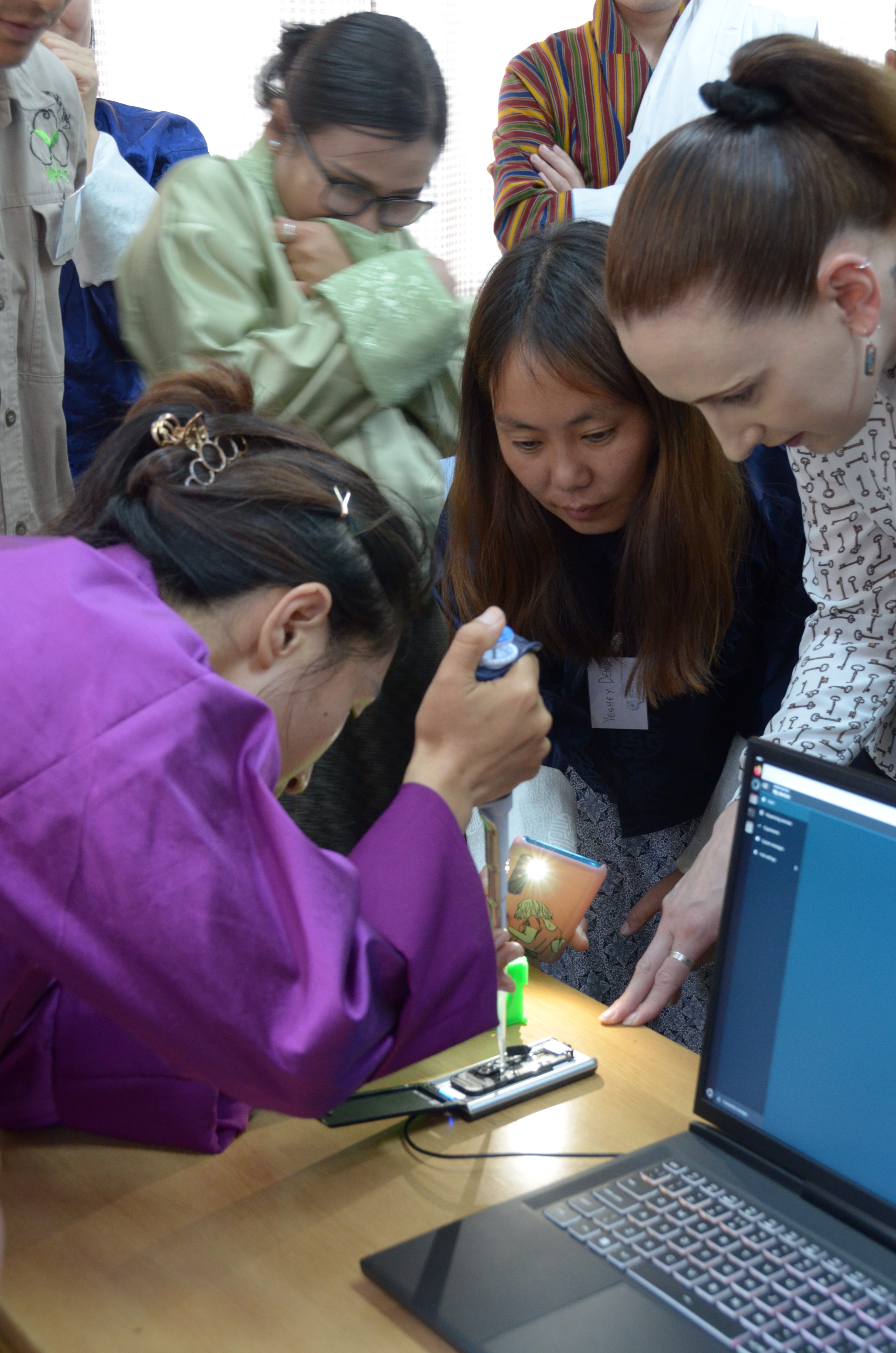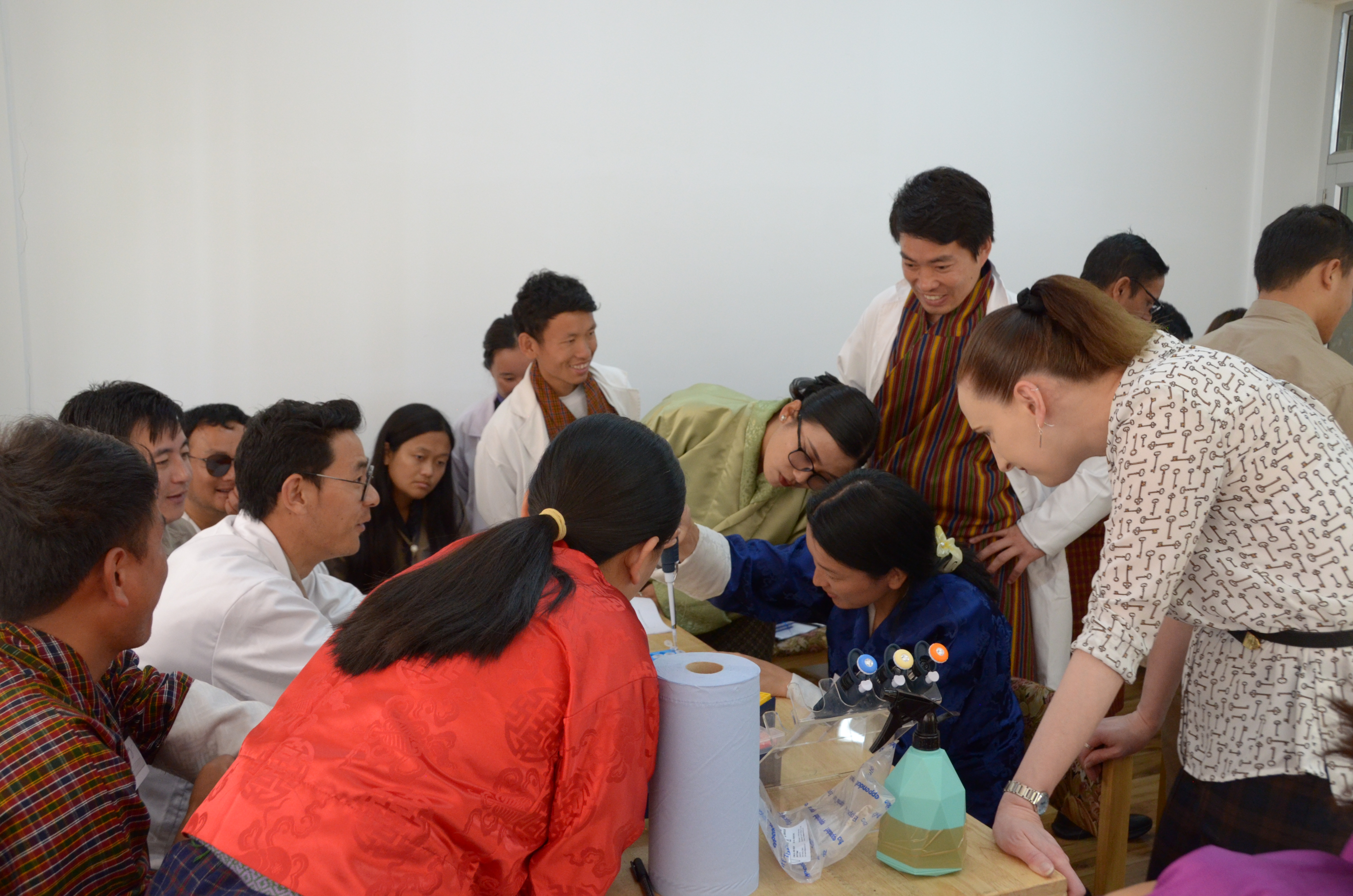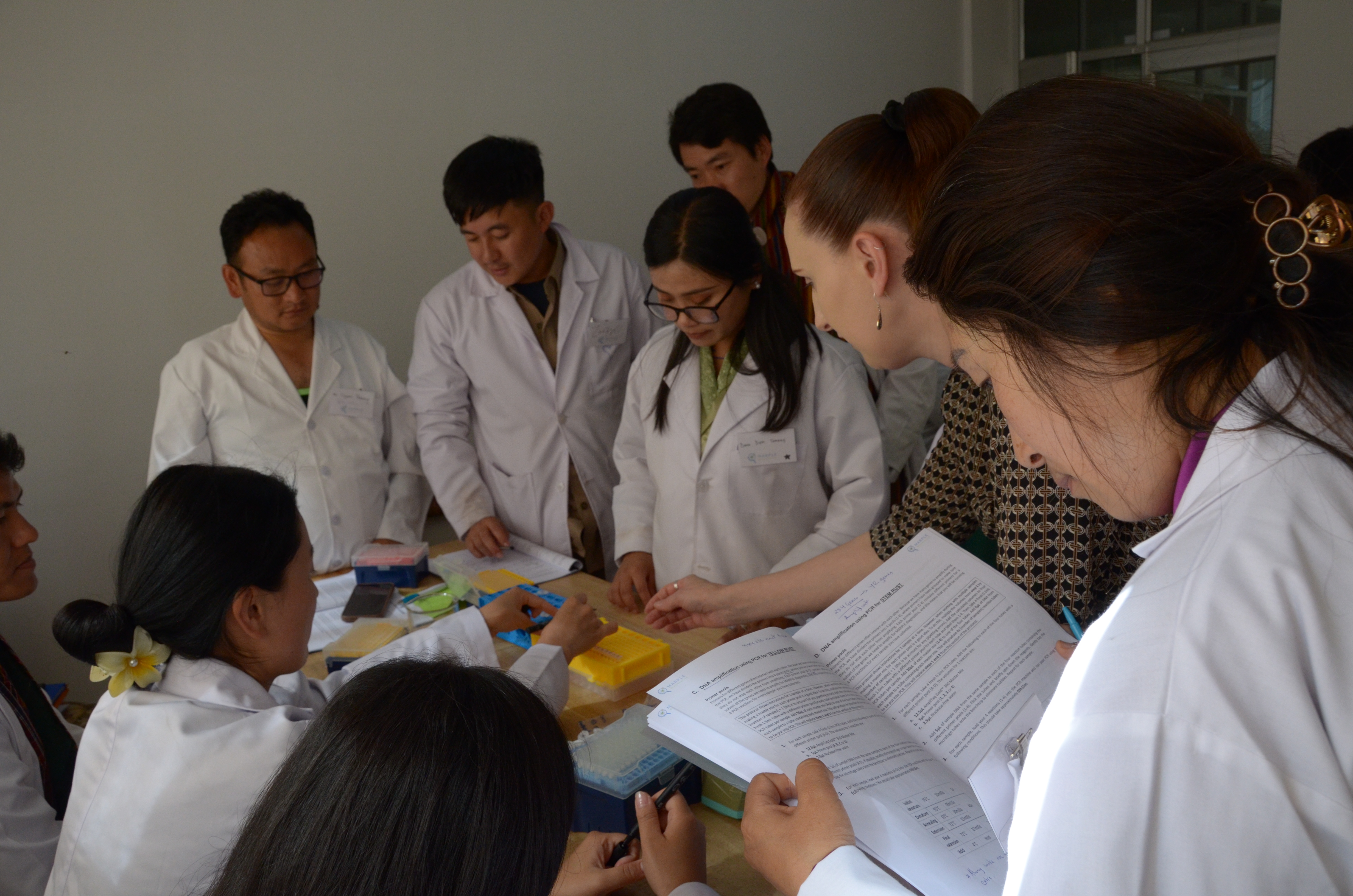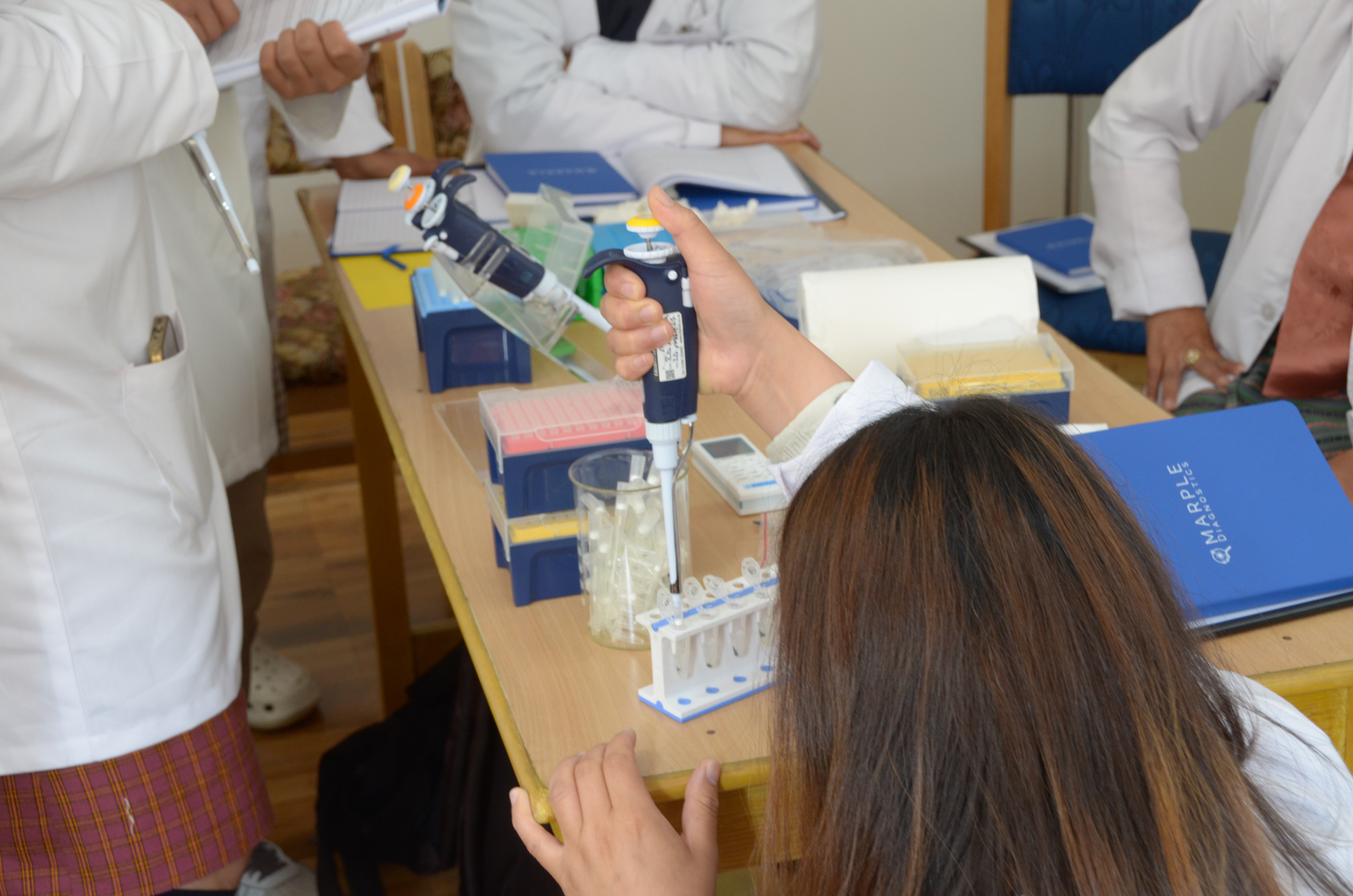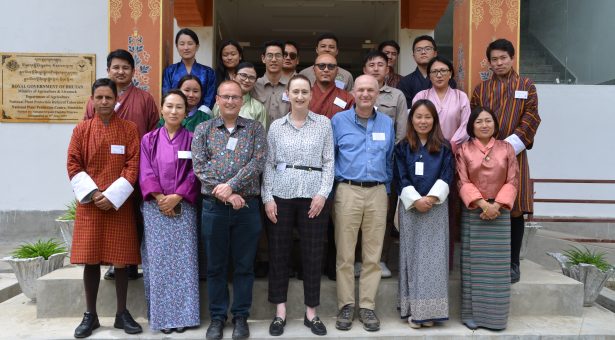
The National Plant Protection Centre in Bhutan is the latest organisation to establish a MARPLE diagnostics hub in partnership with the John Innes Centre and CIMMYT. Bhutan is situated in a global hotspot for yellow rust diversity, so this new hub is crucial for the rapid classification of emerging wheat rust strains in the region, that are at risk of spreading across the world.
Yellow rust is a major global threat to wheat, causing annual losses of 5.5 million tonnes valued at £782 million. In recent years, climate change has given rise to more aggressive rust strains, which has devastated 40% of wheat harvests across Africa, the Middle East and Central Asia.
Mrs Yeshey Dema, Program Director at the National Plant Protection Center, commented: "Wheat is a minor but important crop for Bhutan. While the area cultivation is very small but sufficient for our needs, our country is a hotspot for many wheat diseases so having MARPLE diagnostics in our hands helps us to contribute a better understanding of the pathogen diversity for the global community."
Professor Diane Saunders OBE, project co-lead and group leader at the John Innes Centre, noted: "Implementing a real-time, strain-level disease diagnostic capability via MARPLE diagnostics will provide hugely valuable insight into pathogen diversity in the region. Gaining new insight from the Himalaya region is not just incredibly important for Bhutan, but also for many major wheat producing countries worldwide."
Wheat rust pathogens primarily spread through long-distance dispersal by wind, which carries spores across vast distances, sometimes even continents. These spores lead to new infections and disease outbreaks. Other factors include the movement of infected plant material and accidental transport of pathogens via humans, such as through contaminated clothing.
Dr Dave Hodson, project co-lead at CIMMYT, explained: "We have discovered a strong migration route, with wheat rust races that emerge in the Himalaya region being found within a couple of years in East Africa causing major damage. There is a similarly worrying story of wheat rust strains migrating into western Europe. Better diagnostics of the emergence of new strains are hugely important to keeping us ahead of the next potential threats for other regions."
Implementation of MARPLE diagnostics in Bhutan is a game changer for the speed that new strains can be classified and helps to keep this analysis in the hands of researchers on the ground. The MARPLE diagnostics methodology developed at the John Innes Centre, in collaboration with CIMMYT, uses a handheld MinION nanopore sequencer, built by Oxford Nanopore, to analyse samples of wheat infected with yellow or stem rust. By reading the pieces of the pathogen's genome which define the different strains of the wheat rust pathogen, this method can provide near real-time information about which strains are present.
Professor Saunders and Dr Roland Wouters, senior genomics specialist at the John Innes Centre, and project co-lead Dr Dave Hodson from CIMMYT spent a week in Bhutan to visit colleagues and support the setup of this vital system, hosting a workshop to share the skills needed for researchers to use the technology independently. Mrs Dema continued: "Following this first workshop, researchers have already successfully adopted the method and are currently processing samples from the latest field surveys."
Installation of MARPLE diagnostics in Bhutan strengthens existing molecular diagnostics capacity, building on the recent investment by the Bhutan government in a state-of-the-art molecular biology facility at the National Plant Protection Center.
Professor Saunders OBE concluded: "I'm hugely impressed by the dedication of the researchers in Bhutan, who have so rapidly adopted the MARPLE methodology. I look forward to strengthening the connections between our institute and Bhutanese colleagues as we work together to wrestle with the continuous threat posed by wheat rusts worldwide."
MARPLE diagnostics is currently supported by the Gates Foundation and the Foreign, Commonwealth and Development Office (UK), with additional support from the UK Biotechnology and Biological Sciences Research Council (BBSRC) Innovator of the Year Award, and the CGIAR Big Data Platform Inspire Challenge.
